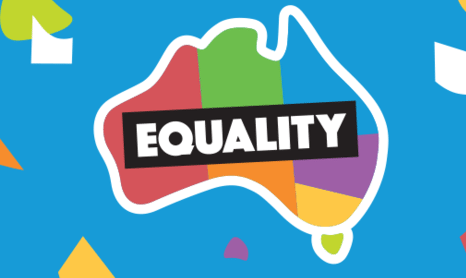Media companies draw varied lines on same sex marriage advertising
If the Turnbull government’s proposed same-sex marriage postal plebiscite goes ahead, predictions are many of the arguments will be bitter, divisive and possibly misleading. Mumbrella’s Zoe Samios asked media owners and publishers what restrictions they plan to place on advertisers as the campaigns get underway.
Following the Turnbull government’s announcement this week it would run a postal plebiscite on marriage equality, the advertising industry launched a website – Say No to No – a pledge not to work on the ‘No’ campaign should the postal plebiscite go ahead.
At the same time, the ABC sent out an internal email to staff, warning employees, particularly those with high profiles, against voicing their opinions about the issue.

The pro-marriage equality campaign, which launched earlier this year


The no-fers use parliamentary privilege to fly the ‘gay equals pedo’ story. Ebetz, sadbot, they have serious form here. My fervent hope is some f**ktard from the fundies tries it on FTA believing it’s protected speech and learns hard what you really can’t say on TV. I actually hope they don’t, it would be outrageous and horrid but the thing is we can expect that trash talk level of campaign. Why do I say this? Because I am stupid enough to read mud-ditch (sorry Murdoch) press readers letters. My eyeballs are in pain from the overt homophobia.
No great surprise in the big media companies saying they believe in free speech and will allow both sides to voice their opinion – translation; “We will happily take the ad spend”
A big test for democracy and free speech. May the best man or woman(or men and men or women and women) win.
The “Equality” graphic is false and misleading. SSM is not about equality. Equality is a principle, therefore it’s immutable. That means equality across the board, no exceptions, not one.
If equality in marriage is sought, then it must by principle and definition also apply to a 70 year-old man marrying a child. Or an adult marrying a person with a serious intellectual disability – both scenarios most would find repugnant. When SSM activists stop communicating in misleading and deceptive ways like this, they will start to win the mainstream over. We are a long way from that point, and it’s looking like we’ll never reach it.
All the examples you provided are would stop any “different sex marriage” from occurring. States can register same sex civil unions but not marriage, which means that denies federal considerations such as worker’s compensation or pensions, and also adds red-tape (e.g. moving to a new state sometimes means a new register). The word “marriage” in Constitution s51(xxi) includes same-sex marriage. Parliament needs to remove the law that entitles different-sex couples to rights that same-sex couples cannot enjoy.
That is hypothetical hyperbole. We’re talking about equality in the marriage debate. For adults. Children can not get married, so don’t insinuate that’s where this is heading. And don’t drag mental health issues into it either. They have just as much right to get married too.